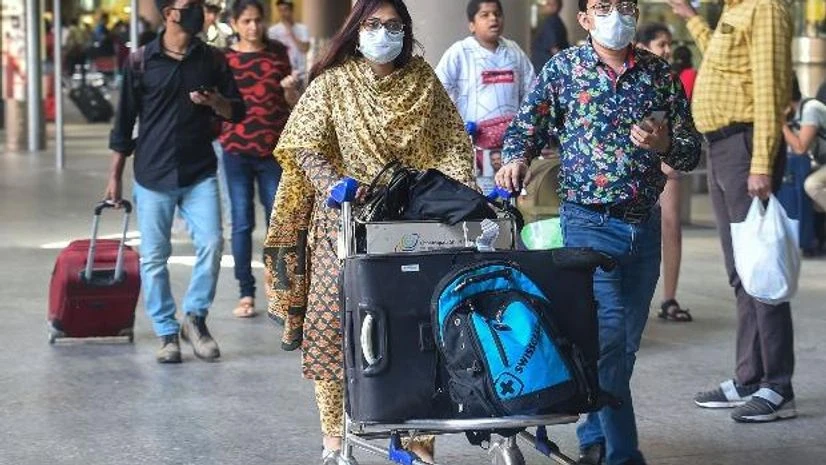A mad dash for emergency visas and flights was witnessed on Tuesday as Indians in the UK began racing against time before the 1200 GMT deadline for India's travel ban from Britain and Europe kicks in on Wednesday, as part of measures to tackle the coronavirus pandemic.
India on Monday banned the entry of passengers from Europe, Turkey and the UK from March 18 till March 31 to contain the spread of the deadly virus.
The Indian High Commission in London was inundated with calls and messages on social media from Indians seeking clarifications on the latest travel advisory and also support for emergency visas.
If you are travelling before the deadline of 1200hrs GMT on 18th March there should not be any problem, the Indian High Commission said in response to a flurry of queries on social media.
The cut-off date and time is for the port of departure, it clarified.
Also Read
People caught up in the chaos range from Indian nationals on tourist as well as student visas set to expire within days or weeks, those on student visas just keen to be back home with loved ones and also those desperate to travel due to a family emergency.
The Chinese students I spoke to said that the Chinese Embassy spoke to the UK immigration for them to get their student visas extended. Can't the Indian High Commission do the same, questioned one student on Twitter.
Can you please help us students stuck here in London? Some of us are STILL healthy and we don't want to contract this disease which is an inevitability if we are left here, added another.
The National Indian Students and Alumni Union UK (NISAU-UK), a representative body for Indian students in the UK, is working with the authorities to try and calm some of the unrest within the student community and called on them not to panic.
There is significant unrest amongst Indian students since the last few weeks. There have been a range of queries mostly centred around wanting to travel back to India and concerns about the impact on their studies and being able to travel back to the UK.
One student also contacted us having developed some potential coronavirus symptoms, NISAU UK chair Sanam Arora said.
The Indian High Commission has set out procedures for emergency visas, which include necessary supporting documents such as a certificate from a doctor or hospital to be submitted along with the application.
However, with airlines not allowed to board passengers to India from Wednesday until March 31, hundreds of Indian passport holders as well as Overseas Citizens of India (OCI) face remaining in lockdown in the UK, which has reported 55 deaths from COVID-19.
The UK's Foreign and Commonwealth Office (FCO) updated its travel advisory for India to advise against all but essential travel to India.
The advisory notes: The government of India has announced that passengers from the UK (and the EU and Turkey) will be prohibited from entering India.
Airlines will not permit passengers from those countries to board planes from 1200 GMT on 18 March 2020. The restrictions are due to be in place until at least 31 March 2020. This does not affect British nationals already in India who should follow the advice of local authorities.
It was followed by UK Foreign Secretary Dominic Raab announcing in the House of Commons on Tuesday that all Britons are now being advised against all non-essential travel for an initial period of 30 days.
The UK Home Office has, meanwhile, eased rules around campus absences of students on Tier 4 visas and called on universities and employers to consider exceptional circumstances for those on other types work visas.
Its guidance notes: Some Tier 4 students or Tier 2/5 employees may be prevented from attending their studies or employment due to illness, the need to serve a period of quarantine or the inability to travel due to travel restrictions caused by coronavirus.
Sponsors do not need to report student or employee absences related to coronavirus which they have authorised.
The Home Office said it recognises the current situation is exceptional and will not take any compliance action against students or employees who are unable to attend their studies or work due to the coronavirus outbreak, or against sponsors which authorise absences and continue to sponsor students or employees despite absences for this reason.

)
